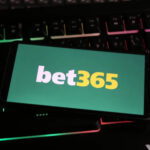First partners with Pixbet in Brazil

First sportsbook has established a long-term partnership with Brazilian operator Pixbet to deliver a localized sportsbook in the country.
The alliance merges Pixbet’s Brazilian presence with First’s LatAm-native technology, which supports real-time PIX payments and Portuguese-language functionality.
First says its infrastructure is tailored for Brazil’s sporting culture, including odds models for competitions such as the Brasileirão, Copa do Brasil, and Série A–C.
First Founder and Chief Executive Tom Light said, “Pixbet isn’t just a market leader – it’s part of Brazil’s sporting DNA. Our partnership reflects a shared belief in high performance, innovation, and long-term alignment with regulation. Together, we’re setting a new standard for what the modern Brazilian sportsbook should feel like.”
The deal marks an expansion for First, which supplies more than 35 operators across Latin America. It says its modular and automated platform allows partners to scale their operations while adapting to regional markets.
Pixbet Chief Executive Diomar Tadeu Dantas added, “Our sportsbook has gained remarkable traction since integrating First’s technology. We’ve seen a clear shift in player preference from casino to sports, driven by a faster, more intuitive, and fully Brazilian experience. With First’s Tier 1 expertise supporting us, we’re more confident than ever in the future of Pixbet.”
The partnership comes as Brazil’s betting industry posted BRL3.79 billion in tax income in the first half of this year.
Charlotte Capewell brings her passion for storytelling and expertise in writing, researching, and the gambling industry to every article she writes. Her specialties include the US gambling industry, regulator legislation, igaming, and more.
Verticals:
Sectors:
Topics:
Dig Deeper
The Backstory
Setting the stage in a fast-regulating market
Brazil’s regulated betting market is moving from promise to scale, and vendors are racing to lock in distribution and trust. The country’s legalization of igaming on Jan. 1 brought global and regional players into sharper alignment around payments, language and local sports, while regulators and financial authorities began mapping volumes and risks. In testimony before the Senate’s Investigative Parliamentary Committee, the head of the Central Bank underscored the limits of its remit over betting firms but quantified the sector’s heft, with monthly deposits on betting platforms estimated between R$20 billion and R$30 billion from January to March, according to Brazil’s Central Bank powerless to regulate online gambling firms. The bank has been sharing data with the Secretariat of Prizes and Betting as the Finance Ministry builds oversight tools, reflecting a regulatory environment that is tightening even as it scales.
That combination — fast growth, emergent rules and intense competition — has pushed operators and suppliers to differentiate on localization and compliance. Payments via instant transfer rails and Portuguese-native experiences are table stakes. So are reliable data feeds, integrity controls and content that resonates with Brazilian bettors. In Latin America’s largest market, partnerships that compress time to market are at a premium, and those that layer compliance assurances on top of product depth are gaining traction.
Suppliers have responded by securing certifications that let operators launch faster and by striking deals that bundle technology, data and content. The trend line is clear: the winners will be those who can stitch together Brazilian-first user experience with verifiable technical standards and the right mix of sports coverage and casino titles.
Pixbet’s platform play widens
Pixbet has been active on multiple fronts to broaden its offer and keep pace with a market that rewards breadth and speed. In content, the operator turned to studio distribution to deepen its casino library, inking a deal that gives its players access to a full portfolio spanning branded and cluster mechanics. The pact, detailed in BGaming announces Brazil partnership with Pixbet, adds titles like Snoop Dogg Dollars and Aztec Clusters, the kind of marquee and feature-led catalog that can drive session time and cross-sell from sports to slots. The move followed BGaming’s testing approvals in Brazil, showing Pixbet’s preference for partners that arrive with a compliance runway already cleared.
That broader library supports an industry shift many operators report in Brazil: sharper segmentation between casino-first and sport-first cohorts and more deliberate pathways to migrate players across verticals. With deposit frictions low and live sports calendars dense, adding recognizable games can be an advantage in retention, especially around national competitions that spike traffic.
Pixbet’s position also reflects the push by leading brands to anchor themselves in Brazilian culture — from product names and copy to markets and payout cadence. Content partnerships that are both creative and tested help meet that bar. They also reduce the operational load on internal studios and allow faster refresh cycles, which matter in a country where digital entertainment cycles quickly and player preferences can swing with sports narratives.
Crash games, global brands and the fight for attention
Competition in Brazil is not limited to local stalwarts. Global operators with deep wallets are deploying product exclusives to gain share, particularly in quick-hit casino categories that have surged in popularity. A recent launch illustrates the tactic: a B2B studio and an international sportsbook collaborated to introduce a new crash title tailored for the market, as outlined in Incentive Games partners with Bet365 to launch Velocity crash game in Brazil. The game is positioned as a differentiated take in a saturated segment, with real-time analytics guiding iteration post-launch. The global brand’s entry into Brazil in January and its strong balance sheet add heft to its content push, raising the bar for engagement and funnel conversion.
For domestic operators and regional suppliers, that escalation from international rivals intensifies the need to deliver Brazilian-native speed and familiarity, especially around instant payments and odds for domestic leagues. It also rewards ecosystems where data, streaming and risk tools are closely integrated, allowing faster market-making and more precise personalization.
Compliance becomes a competitive moat
As oversight frameworks mature, certification is emerging as more than a checkbox — it is a commercial accelerant. Vendors who clear testing with recognized labs allow client operators to compress licensing timelines and reduce duplicate audits. That dynamic is evident in Data.bet expands into Brazil with Gaming Laboratories International certification, where a sportsbook platform secured GLI approval against Brazil’s standards. The certification validated architecture and real-time alerting against irregular activity, and it lets operator partners skip separate technical tests during licensing.
The stakes are material. In a market moving billions of reais monthly, the ability to launch without protracted technical reviews can translate into earlier revenue capture and better positioning ahead of major sports windows. It also signals to regulators and banking partners that controls are in place, an important consideration as authorities scrutinize return-to-player rates and customer credit profiles. With testing bodies adding headcount across Latin America, the pipeline for approvals is expanding, and suppliers that move first can use that head start to win enterprise deals.
This compliance edge pairs with Brazil-specific payments and language features to form a defensible moat. Operators can focus on acquisition and retention while leaning on certified providers for integrity and security, a split that aligns with how many marketing-led brands structure their tech stacks in emerging markets.
Data pipelines and regional depth
Live data, official streams and coverage breadth are foundational in Brazil, where domestic football commands outsized attention and regional competitions fill the calendar. Suppliers that combine a managed sportsbook with official feeds can deliver faster pricing, lower suspension time and a fuller menu. That thesis underpins the expanded tie-up described in First and Genius Sports announce extended data partnership, which emphasizes distribution across Brazil and Latin America and positions the operator as an official betting partner for the data firm.
The scope spans Brazil’s Serie A and B, Campeonato Paulista and major leagues across Mexico, Argentina, Chile and Colombia, among others. For operators in Brazil, that regional depth matters for two reasons. First, it keeps content flowing during domestic lulls, smoothing revenue. Second, it caters to a fan base that tracks players and teams across borders, enabling targeted offers tied to diaspora clubs and continental competitions. Tighter integration between data and sportsbook operations also allows quicker market deployment and responsive risk management, crucial in high-volume spikes around derbies and finals.
As regulators refine rules and financial authorities continue to map sector flows, the Brazilian market is rewarding partnerships that knit together local fluency, certified technology and rich data. Content pipelines that reflect cultural preferences, crash titles that refresh engagement, certifications that de-risk launches and official feeds that deepen coverage all stack toward one goal: winning and keeping Brazilian bettors in an environment that is large, fast and increasingly scrutinized. The competitive landscape will favor those who can deliver speed without sacrificing oversight — and who can turn compliance and localization into engines of growth rather than cost centers.







